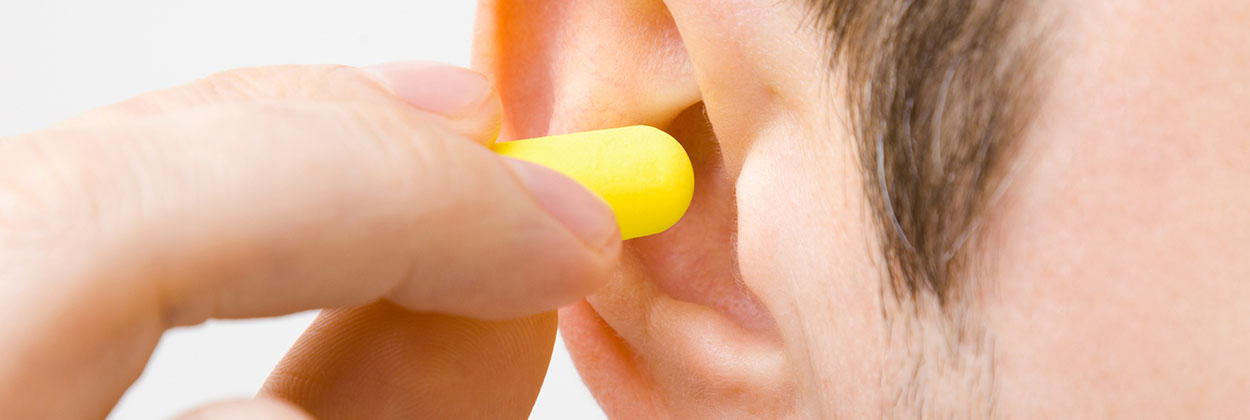Around 1.1 billion people, including teens and adults, will lose their hearing. The reason is their constant exposure to unhealthy sound levels.
The World Health Organization (WHO) states unsafe sound is that which is 85 dB or more heard for eight hours or 100 dB heard for just 15 minutes.
Is Hearing Protection Necessary?
You will be surprised at all the noises you are subjected to during an average day. From street noise like horns honking to construction noise, you pass by on your way to work, to the loud music playing in your favorite restaurant at lunch, your ears go through a lot on an average day.
There are tiny hair cells in your inner ears. They are largely responsible for what you hear. These begin to break down as people age and just don’t pick up sound vibrations as well as they did in younger days.
Constantly subjecting your ears to a lot of loud noises and sound over the years can also damage these tiny hair cells that cause them to lose their function even before you hit your senior years.
Unhealthy Noise is All Around You
This unhealthy sound can come in many forms. From a loud car radio, concerts, factory noise at work, machines in a workshop, or farm equipment in a field are all included in the list of unsafe noise levels. Anyone can be exposed to unhealthy sound levels.
One of the most common ways people are exposed to high sound levels are sporting events, nightclubs, and live music venues. These are fun, so people don’t think about them hurting their hearing.
Many of these types of venus are offering free earplugs to guests. However, there are ways you can protect your hearing if this is not an option.
How to Protect your Hearing
The most obvious solution is to bring your own earplugs if you plan to go to these events. Be sure to get a high-quality type. They need to have a foam or rubber tip and fit nicely into your ear canal. Look to see if they will lower noise levels across all frequencies or are selective in lowered frequencies. Those that lower sound across all frequencies are going to give you the best sound for things like music that is quieter, but not distorted.
Another open for those who prefer not to put something in their ear canal is to invest in earmuffs. These fit over your ears entirely and are effective in reducing sounds by 15 to 30 decibels. However, they need to fit tightly over both ears to truly block sound.
There are other ways to get proactive about hearing protection.
The first thing to do is to try to avoid loud noises. This may be difficult if you live in an urban area or work in a large factory. If you can’t avoid it, then get serious about personal ear protection.
Buy quieter appliances and other items with low noise ratings. These are listed as part of the product description or you can ask the salesperson. Also, don’t be afraid to speak up at a restaurant or movie theater where the noise is just loud. Politely ask that it be turned down.
Smoking, as scientists have proven, does more than affect your lungs. It can also affect your hearing. Quitting smoking and avoiding second-hand smoke will help you protect your hearing.
Earwax removal is another way to help protect your hearing because accumulated ear wax muffles sound. There is a proper way to do this that won’t cause injury to your inner ear. The proper way to clean out earwax is to use an irrigation kit you can do at home that softens wax and then washes it out gently. Compacted wax will require a doctor’s removal.
You should check all your medications to see if they have any impact on hearing as a side effect. Some 200 drugs can cause hearing damage. That includes some cancer-fighting drugs and antibiotics. Scientists state even aspirin if taken in high dosages can harm your hearing.
If you are on medication with a hearing risk, contact an audiologist, and have your hearing checked regularly.
Get a Check-Up
You should have your hearing testing by an audiologist. This becomes more important if you are at a higher risk for hearing loss. High risk includes those with immediate family members with hearing loss, trouble discerning conversations, if you are constantly around loud noises, or if you hear ringing in your ears.
Some people start experiencing hearing loss of certain frequencies rather than general hearing loss. A test by an audiologist will determine exactly where your hearing lies on the audio scale. Once you fight out if you have any hearing loss, your audiologist can recommend how to safely correct it and what you can do to protect your hearing in the future.

Leave a Reply